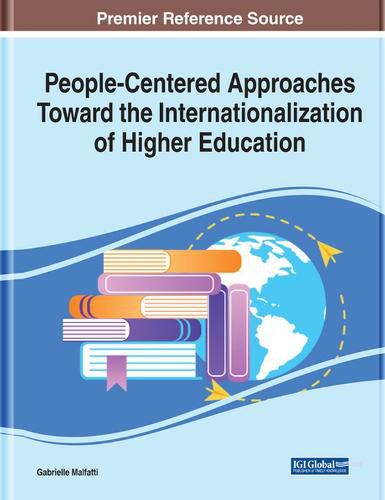Readings Newsletter
Become a Readings Member to make your shopping experience even easier.
Sign in or sign up for free!
You’re not far away from qualifying for FREE standard shipping within Australia
You’ve qualified for FREE standard shipping within Australia
The cart is loading…






This title is printed to order. This book may have been self-published. If so, we cannot guarantee the quality of the content. In the main most books will have gone through the editing process however some may not. We therefore suggest that you be aware of this before ordering this book. If in doubt check either the author or publisher’s details as we are unable to accept any returns unless they are faulty. Please contact us if you have any questions.
Traditionally, internationalization efforts in higher education have been rooted in (neo)liberal transactional models that restrict or compromise the space for meaningful exchanges of socio-cultural capital. Recently, researchers and practitioners in the international education field have taken issue with programming and practices in education abroad; international student recruitment; and internationalization of the curricula that perpetuate systems of imbalance, fossilize prejudices, adversely impact host communities abroad, and limit student learning to the confines of the Western epistemological traditions. As a result, scholars and practitioners are creating new paradigms for engagement and exchange.
People-Centered Approaches Toward the Internationalization of Higher Education is an essential scholarly publication that examines the praxis of internationalization in higher education with empirical research and relevant models of practice that approach the topic critically and responsibly. The book innovates and (re)humanizes internationalization efforts, including education abroad, international recruitment, international scholar and student services, and internationalization of curriculum, by focusing on the people and communities touched, intentionally and unintentionally, by said efforts. It is ideal for higher education faculty, education professionals, academic advisors, academicians, administrators, curriculum designers, researchers, and students.
$9.00 standard shipping within Australia
FREE standard shipping within Australia for orders over $100.00
Express & International shipping calculated at checkout
This title is printed to order. This book may have been self-published. If so, we cannot guarantee the quality of the content. In the main most books will have gone through the editing process however some may not. We therefore suggest that you be aware of this before ordering this book. If in doubt check either the author or publisher’s details as we are unable to accept any returns unless they are faulty. Please contact us if you have any questions.
Traditionally, internationalization efforts in higher education have been rooted in (neo)liberal transactional models that restrict or compromise the space for meaningful exchanges of socio-cultural capital. Recently, researchers and practitioners in the international education field have taken issue with programming and practices in education abroad; international student recruitment; and internationalization of the curricula that perpetuate systems of imbalance, fossilize prejudices, adversely impact host communities abroad, and limit student learning to the confines of the Western epistemological traditions. As a result, scholars and practitioners are creating new paradigms for engagement and exchange.
People-Centered Approaches Toward the Internationalization of Higher Education is an essential scholarly publication that examines the praxis of internationalization in higher education with empirical research and relevant models of practice that approach the topic critically and responsibly. The book innovates and (re)humanizes internationalization efforts, including education abroad, international recruitment, international scholar and student services, and internationalization of curriculum, by focusing on the people and communities touched, intentionally and unintentionally, by said efforts. It is ideal for higher education faculty, education professionals, academic advisors, academicians, administrators, curriculum designers, researchers, and students.